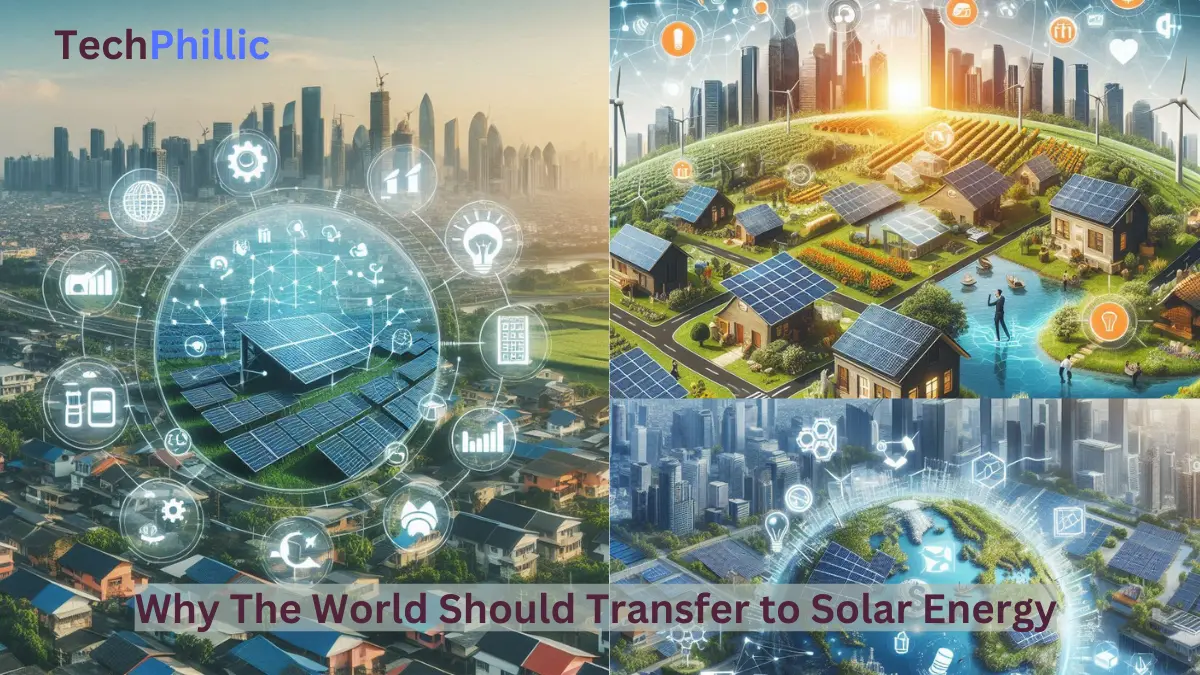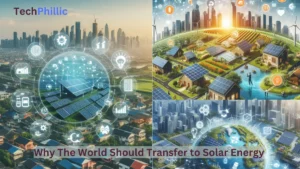Introduction
Solar energy is one of the most sustainable and cost-effective ways to generate electricity. It harnesses the power of the sun to provide clean and renewable energy. As the world faces increasing environmental challenges, transitioning to solar energy becomes crucial. This blog post will explore the reasons why the world should transfer to solar energy, highlighting its benefits, technological advancements, economic advantages, and environmental impact.
Environmental Benefits
Reduces Carbon Emissions
Solar energy is a clean energy source. Unlike fossil fuels, solar power does not emit carbon dioxide or other harmful pollutants. By switching to solar energy, we can significantly reduce greenhouse gas emissions. This helps combat climate change and reduces air pollution, which improves public health.
Decreases Dependence on Fossil Fuels
Fossil fuels like coal, oil, and natural gas are finite resources. They also contribute to environmental degradation. Solar energy is abundant and inexhaustible. By adopting solar power, we can decrease our reliance on fossil fuels, leading to a more sustainable future.
Conserves Water Resources
Traditional power generation methods, such as coal and nuclear plants, consume vast amounts of water for cooling. Solar panels require minimal water to operate. This conserves water resources, which is particularly important in areas facing water scarcity.

Economic Advantages
Lowers Energy Bills
Installing solar panels can significantly reduce electricity bills. Once installed, solar panels provide free energy from the sun. This can save homeowners and businesses a lot of money in the long run. Many governments also offer incentives and tax credits to encourage the use of solar energy.
Creates Jobs
The solar industry is a major source of job creation. From manufacturing and installation to maintenance and sales, solar energy creates numerous employment opportunities. This boosts the economy and provides stable jobs for many people.
Increases Energy Independence
By producing our own energy from solar power, we can reduce dependence on foreign energy sources. This enhances national security and stabilizes energy prices. Countries that invest in solar energy can become more self-sufficient.
Technological Advancements
Improved Efficiency
Solar panel technology has advanced significantly over the years. Modern solar panels are more efficient and capable of converting more sunlight into electricity. This means that even smaller installations can generate significant amounts of energy.
Energy Storage Solutions
One of the challenges of solar energy is its intermittent nature. However, advancements in energy storage solutions, like batteries, have made it possible to store excess energy generated during the day. This stored energy can be used at night or during cloudy days, ensuring a reliable power supply.
Integration with Smart Grids
Solar energy can be integrated with smart grid technology. This allows for better management of energy distribution and consumption. Smart grids can optimize energy use, reduce waste, and improve the overall efficiency of the power system.

Social Benefits
Promotes Energy Access
In many developing countries, access to electricity is limited. Solar energy can provide a reliable and affordable power source for remote and rural areas. This can improve living standards, support education, and foster economic development.
Supports Sustainable Development
Solar energy aligns with sustainable development goals. It provides clean energy, promotes economic growth, and ensures environmental sustainability. By investing in solar energy, we can build a better future for all.
Overcoming Challenges
Initial Costs
The initial cost of installing solar panels can be high. However, the long-term savings on energy bills and the availability of government incentives can offset these costs. Additionally, prices for solar panels have been decreasing as technology advances.
Space Requirements
Solar panels require space for installation. For large-scale solar farms, this can be a challenge. However, rooftop solar installations on homes and buildings make efficient use of existing space. Innovations like solar windows and solar roof tiles are also emerging to address space constraints.
Weather Dependence
Solar energy production is dependent on sunlight. Cloudy days and nighttime can affect energy generation. However, energy storage solutions and hybrid systems that combine solar with other energy sources can mitigate this issue.
Also Read: Best Solar Companies in the World: A Comprehensive Guide
Conclusion
The transition to solar energy offers numerous benefits for the environment, economy, and society. It reduces carbon emissions, lowers energy bills, creates jobs, and promotes sustainable development. Technological advancements continue to improve the efficiency and reliability of solar power. Although there are challenges to overcome, the advantages of solar energy far outweigh the drawbacks. By embracing solar energy, we can create a cleaner, healthier, and more sustainable future for generations to come.







